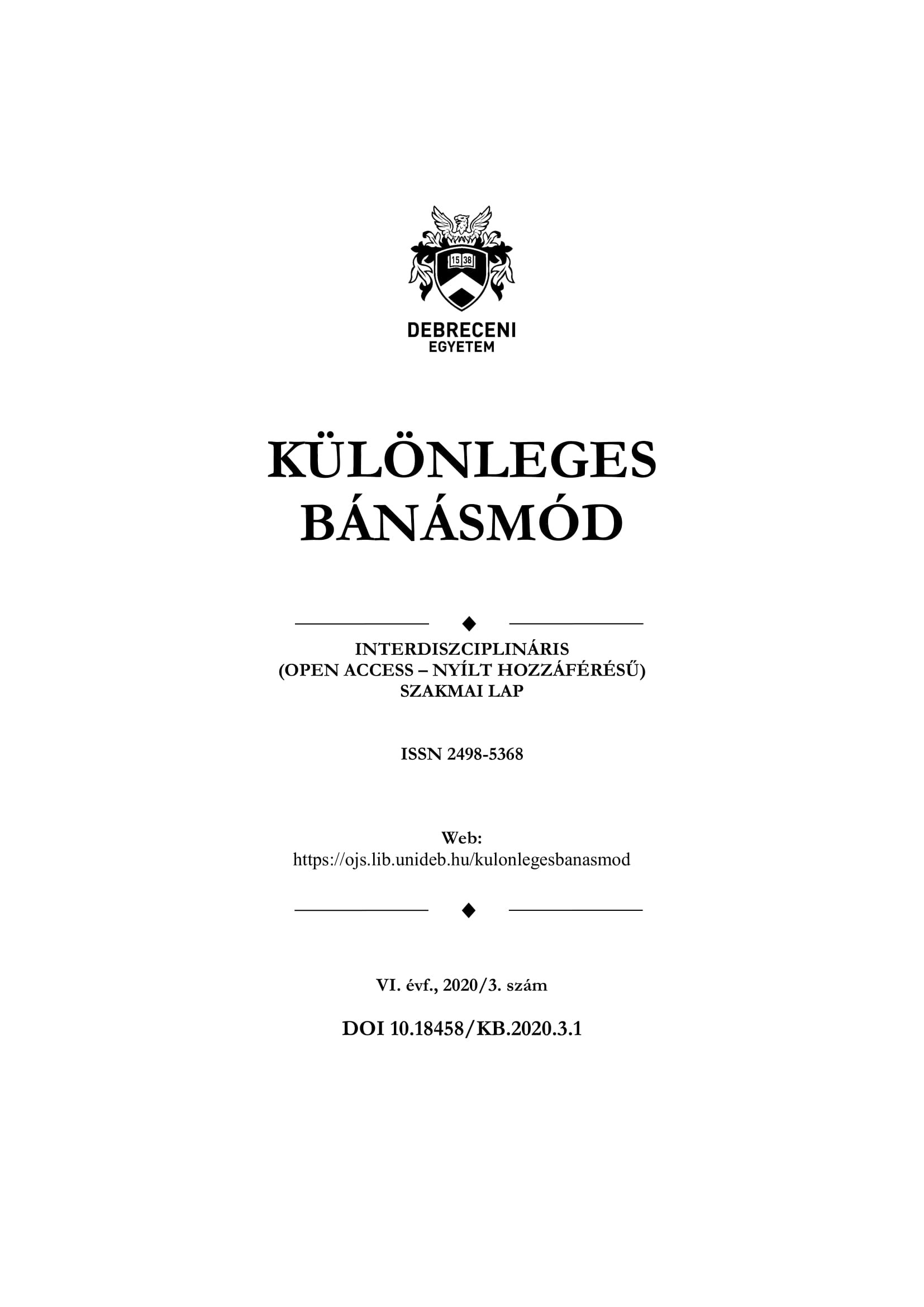STUDENT’S ATTITUDES TOWARDS CHILDREN WITH DISABILITY
Author
View
Keywords
License
Copyright (c) 2020 Krausz Anita

This work is licensed under a Creative Commons Attribution-NonCommercial-NoDerivatives 4.0 International License.
How To Cite
Abstract
Several studies have shown that integrated education has advantages in students’ social development and accepted attitude development (Meyer, Park, Grenot-Scheyer, Schwartz & Harry, 1998). The studies about the integrated education had been traced for several decades, our research is based on the CATCH (Chedoke-McMaster Attitudes Towards Children with Handicaps Scale) questionnaire (Rosenbaum, 1985) which instrument had been used in several international studies as well (Tirosh, 1997; Vignes, 2008; Godeau 2010; Bosseart, 2011; De Laat, 2013, Schwab, 2017). Our major aim is to map the adolescent youth, their attitudes towards children with special treatment. The questionnaire was based on the three-component model of attitudes proposed by Triandis (1971). This 36-item, the self-administered scale was primarily paper-based, but our adaptation is placed on the online form. The participants of the study were 7th-grade students (N=99) The overall reliability of the test was satisfactory (Cronbach-α= 0,856). In the content analysis, we found two items that were significantly negative and four items which were not significant, those leaving the KMO= 0,809 (KMO>6), therefore suitable for factor analysis. The results show that, however in our sample, these three-component factors aren’t so clear, the test is reliable. There are some subtests that call for a revision, and we will need further researches to develop our assessment tool to make it more reliable and valid.


 https://doi.org/10.18458/KB.2020.3.7
https://doi.org/10.18458/KB.2020.3.7